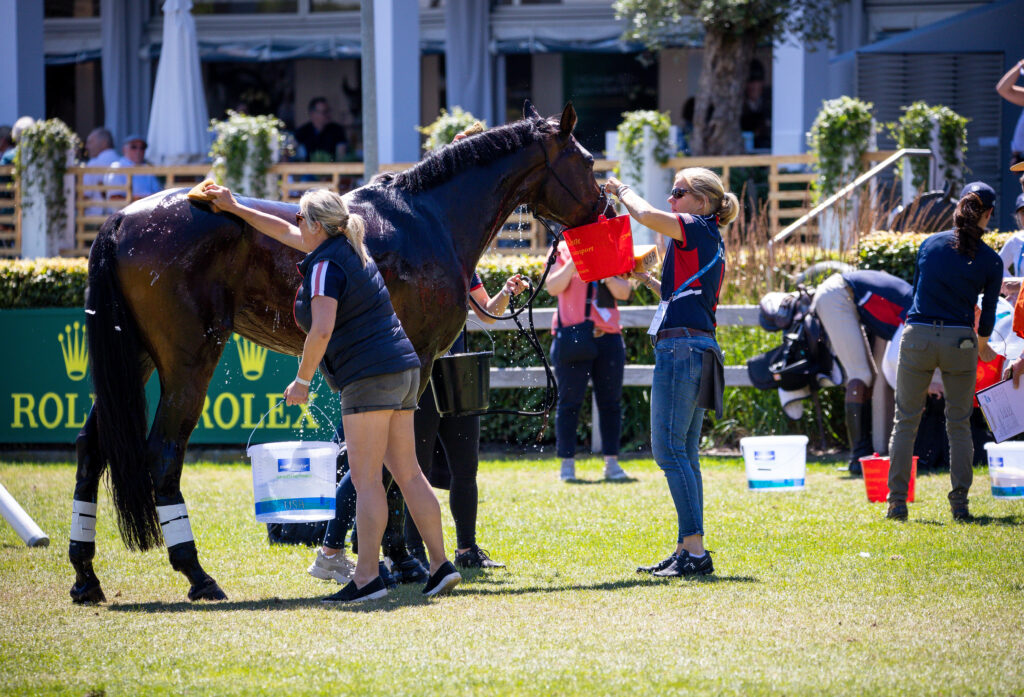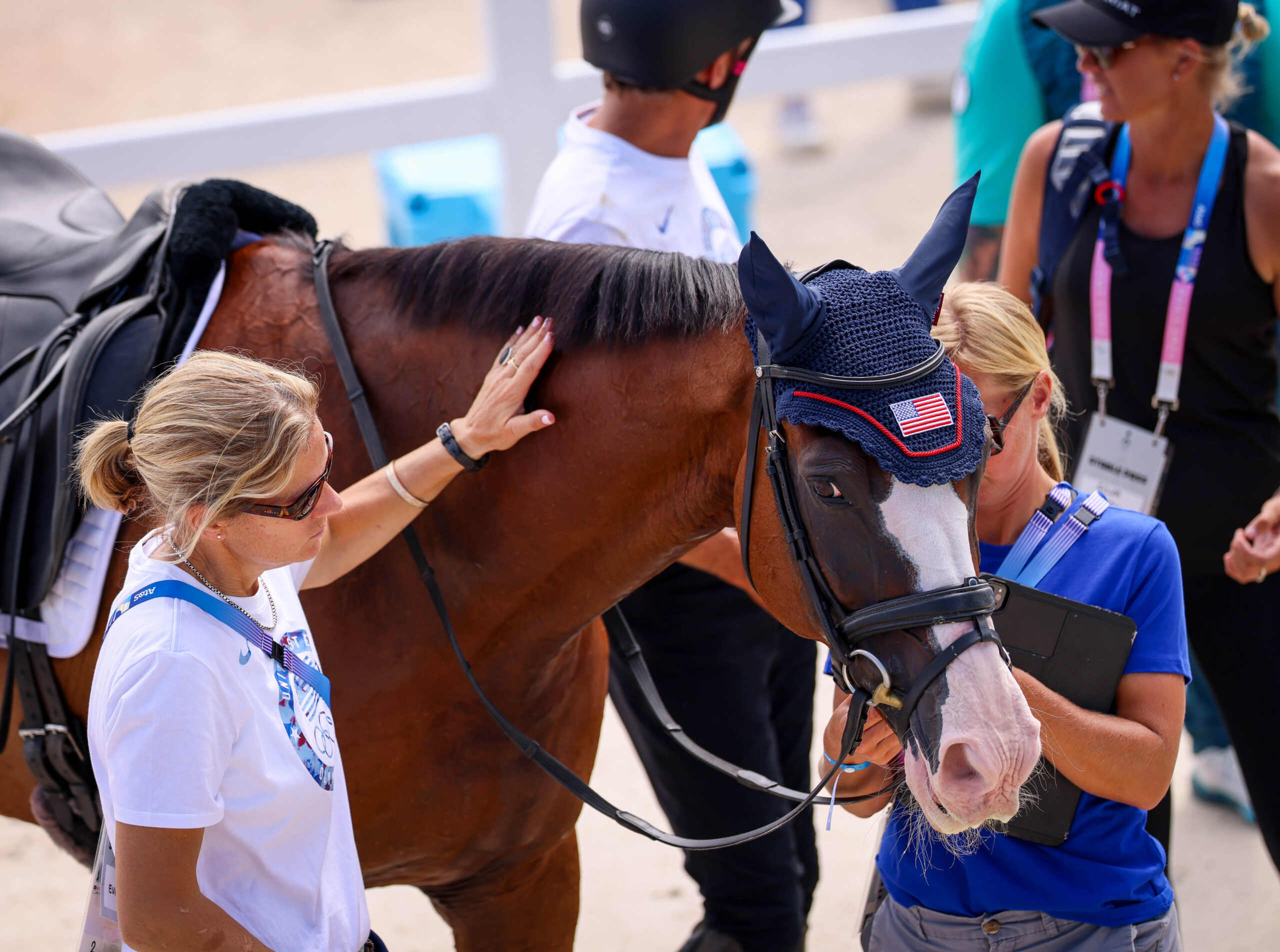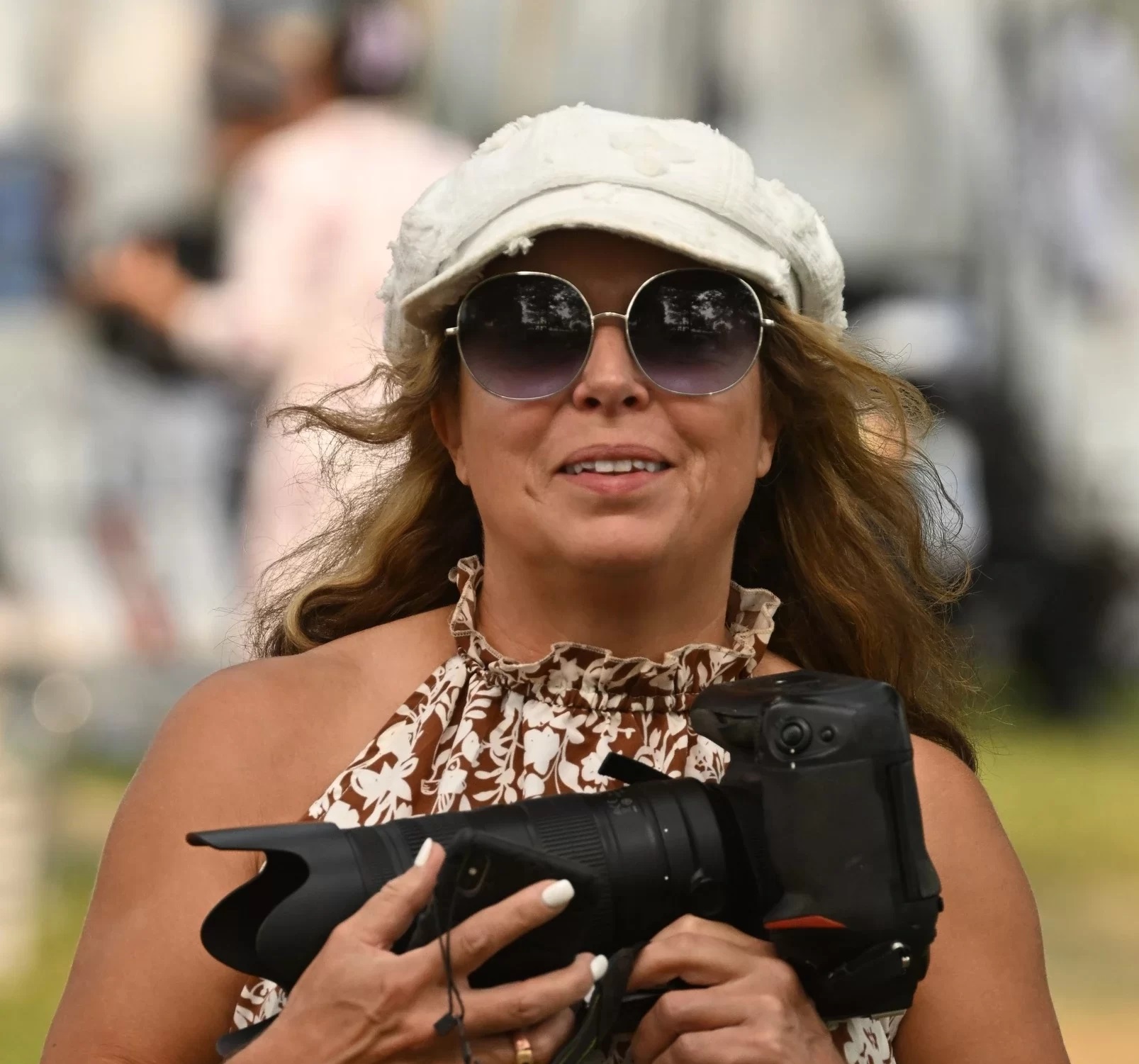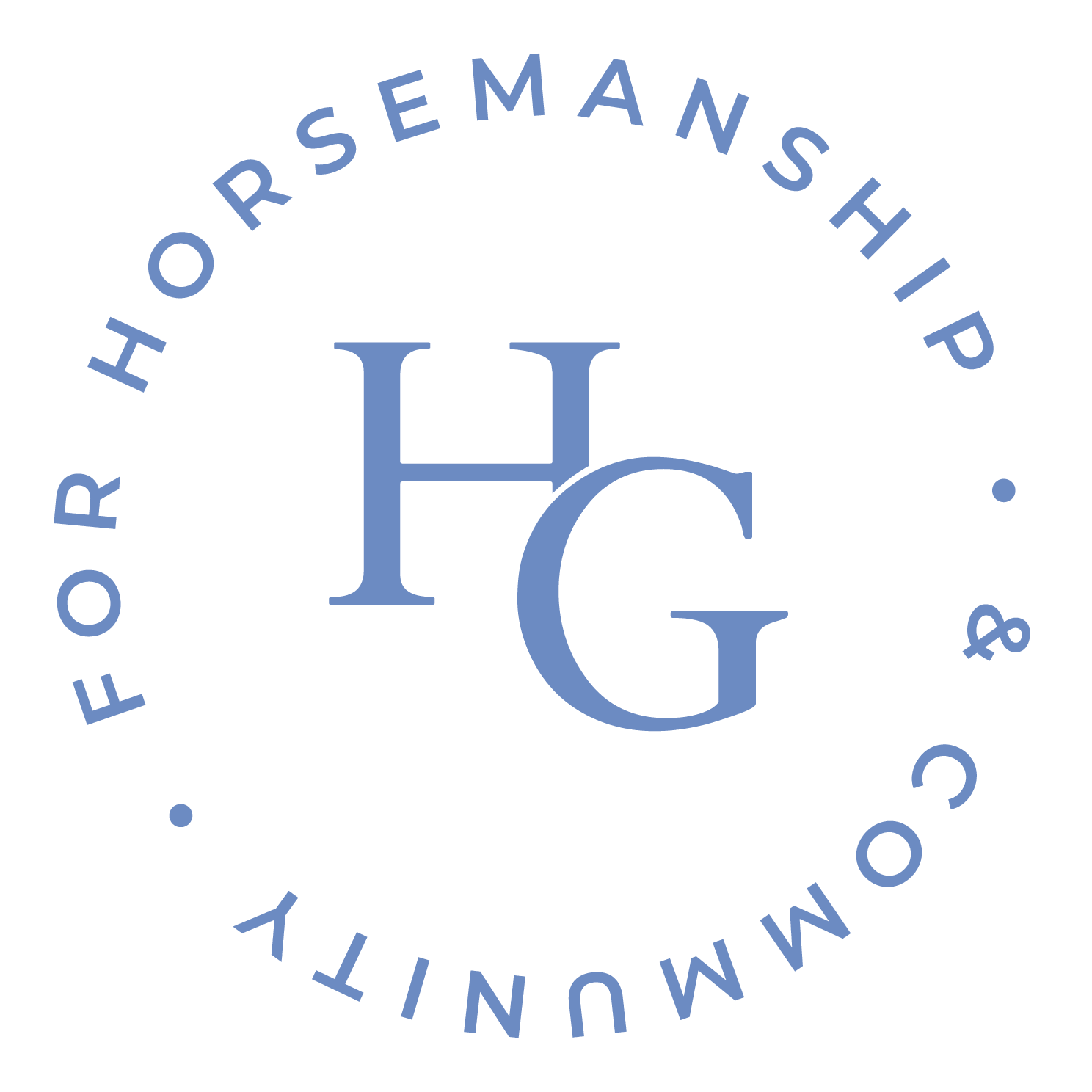Max Corcoran first became a groom at 12 years old, working off riding lesson fees with Bobby Costello at the barn in South Hamilton, Massachusetts. A former longstanding member of the O’Connor Event Team and a former U.S. Eventing Association president, she has long been an advocate of horsemanship and positive change in grooming and the horse world in general. Since she did not come from a horsey family, she learned the craft from others in the field – and she believes the art of watching and learning remains paramount in order to keep the industry healthy.
Positive Changes in the Grooming Industry
Corcoran, who has groomed for some of the best, including a longstanding job with eventing legends David and Karen O’Connor, recognizes some very positive changes in the grooming industry in recent years.
“So much has happened. It’s actually pretty great,” she said, from her base in Ocala, Florida. “One of the biggest things is that, at the World Championships and the Olympics, they announce the grooms [as well as the horse and rider] which is so right, because we are part of the team. We know those horses better than the riders do. Any good rider will say when they get on a podium, they don’t stand there by themselves. There’s the whole team behind them that helps get them there.”
One of the recent changes, she sees as particularly monumental, is the fact that grooms have a seat on the Fédération Equestré International board. “You never would have thought about that. Even five years ago we didn’t – let alone 10,” said Corcoran. “But what Lucy Katan has done with the British Grooms Association [as founder] and the International Grooms Association [as founding director] and getting a seat on the FEI board is incredible.”
For Corcoran, having a place at the top table is paramount, given a groom’s role on the frontline – as well as the back office – of the sport. “We actually have a voice,” she said. “A lot of times the riders especially in the jumping world – it’s their culture to go to the ring and not necessarily be back in the barns. We, as grooms, know a lot more when it comes to sort of that nitty, gritty bit in the back end. And people are now listening.”
Stateside is a Different Environment for Grooms
While HorseGrooms has had traction in the U.S. – not least to Founder Dinette Neuteboom working stateside particularly winters in Wellington, Florida – the response to the International Grooms’ Association is stronger in Europe. Corcoran believes there is a reason for that. “In America the grooms are looked after pretty well for the most part,” she said. “There’s a lot of prize money, and they get good recognition, and the owners give really good tips.

“In Europe, it’s very different. It’s a lot more classist in general,” she adds. “Here we get decent housing; you can grab free snacks or water at shows. There used to be nothing at shows, but now it’s become part of the norm. If you go somewhere and they don’t have it, you’re like, ‘Hey, wait a minute.’”
Grooms Staying On in the Industry
Grooming has not always been a solid career choice or at least not considered a vocation with longevity. In an ideal equestrian world, grooms would stay on in the industry rather than consider it a passage of youth that does not translate to a lifetime employment. This, too, is changing and it is the younger generation that are cause for concern.
“I’d like to say the industry is healthy,” said Corcoran. “I think there’s a mid-group [in age] that’s actually quite healthy, but the next generation that’s coming through – your sort of 18 to 25 year olds – there are a lot of people that just don’t want to work. There are a group of people that are a complete exception to the rule, too. But there are people who want a lot for not a lot of work.”
The distractions of modern-day society are also an impediment when it comes to the upcoming generation of equestrians. “We need to encourage the next generation to be better horsemen,” Corcoran said. “To not be on their phones all the time, to not want instant gratification in uploading photos. Instead they need to be present, to be part of it, to watch and listen and learn all the time. Our culture now is to want things immediately.”
Corcoran also feels that social media has prompted young equestrians to spend money unwisely. “Next there is a group of people that are spending so much time and money on having their own social media, on their feeds and these reels that they pay people to make. And they’re not spending the money having a lesson or taking the time to learn. There is a gap in there somewhere.”
Mentoring Needs Reviving
Learning on the job has always been an integral part of being a groom. Few in the industry go to school or learn from textbooks. Mentoring from older, more seasoned professionals has helped to pass down advice through generations, but the culture has changed and not for the better.
“Mentorship is something that is lacking. If you spend two years working under somebody and being the second in command, you’re going to learn a whole lot more than if you try to go out and do it all by yourself,” said Corcoran. “With the right person, you’re going to be better for it. You just are.”
The temptation to go it alone is too great for some who may compromise their potential by flying solo before they have enough experience. “Some young riders get to a certain level, and they don’t want to work for somebody anymore. They want to work for themselves,” said Corcoran. “They have a logo designed for them, and they become professionals. They don’t continue to learn from someone with more experience. They don’t have a mentor, and they don’t stay in the program. I think that’s a massive leap.
“In our eventing world, there are a lot of kids that are in that sort of 18 to 26 year old gap that are very good riders, who have had some success, and they’ve gone off for one reason or another on their own,” she adds. “I think some of it’s financial. They’re starting to get clients, and they’re like, ‘Oh. If I get clients, then I can go out on my own.’
“But they’ve missed a lot – a huge education of just seeing all the different types of horses, asking all the questions, knowing what to ask, and even just to have the experience. They don’t know what they don’t know.”
Educating Through Clinics
Through her work with the USEA Grooms Committee, made up of grooms of all generations, Corcoran helps to run winter clinics in Aiken, South Carolina, and Ocala for the eventing community. She covers a multitude of subjects – anything from clipping, to course designing, to massage therapy, veterinary advice, turnout and more. There is also the Liz Cochran Memorial Groom’s Award of $5,000 given each year through nominations from the community.
“The clinics are not just for grooms,” said Corcoran. “We want young professionals to come. We want grooms to come. We want adult amateurs to come. We just want to continue to give the opportunity for education to everyone who wants to learn.”
Photos courtesy of U.S. Equestrian.


